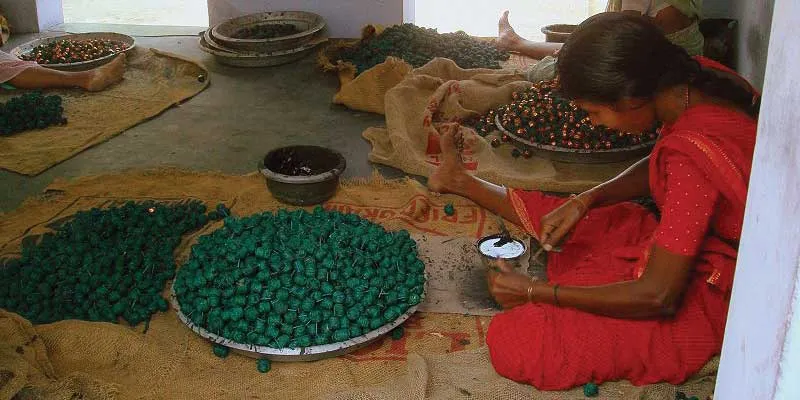7 things you didn’t know about the Indian firecracker industry
Diwali’s metamorphosis from the festival of lights into the festival of sparks has never been one of subtlety. We have been drawn to those sparks and sounds as instinctively as the Neanderthal was drawn to the fire he created. While we celebrate this age-old tradition, it doesn’t hurt to know a few facts about the industry that made Diwali as grandiose as it is today.

The Indian firecracker industry is the second largest in the world
To get the obvious out of the way, the giant is, of course, China. India is among the top for a very simple reason – Human resource. Being the second most populated country in the world gives us this single most important resource that sustains industries. India also has a festival that necessitates a large industry. Although firecrackers are used for several occasions around the world, the Indian firecracker industry always did, does and will have Diwali to feed its voracious appetite.
Kolkata was where it all began
You may know that Sivakasi in Tamil Nadu is currently the hub of the Indian firecracker industry. This, however, was not the case in the beginning. In the early 1900s, a gentleman by the name of Dasgupta was running a match factory in Kolkata. Driven out of Sivakasi by its draught and famine, two brothers –Shanmuga Nadar and P Ayya Nadar – found their way to this factory in search of employment. Having learnt the clockworks of a match factory, the two cousins then returned to Sivakasi to begin their own enterprise. Ironically, the draught that drove them out welcomed their return, as dry weather is ideal for firecracker manufacturing. Thus, Sivakasi became what it is today.
Sivakasi has ties with the Indian Army
Many industries in Sivakasi provide customised alternatives to the army’s Ammunition and Ordnance factories. The Military Fuzee matches (developed by the Standard Match Industries), for instance, allows militaries to light fuse wires without detection as the matches become red hot instead of evoking a flame. Storm proof matches, smoke screens and practice bombs are a few other products that Sivaski customises for the military.
Sivakasi has its own Fireworks Research and Development Center (FRDC)
This centre was started with a view to set quality and safety standards for the entire industry. They take on the responsibility of testing the raw materials, monitoring the hazardous manufacturing process and safety of the personnel, among others. The firecracker industry may have been victim to many tragic accidents, but those numbers would have been exponential if not for the efforts of FRDC.
India does not export any of its firecrackers
The problem here is unsuitable storage and inadequate shipping facilities. Importing countries impose strict regulatory standards that India has been unable to meet. Being one of the largest firecracker industries in the world gives us a great potential to turn those commodities into foreign revenue. The government is constantly trying to improve our shipping standards but until then, we’ll be exporting zilch.
No one in the industry has the licence to import fireworks
Because fireworks have been categorised under restrictive items by the Director General of Foreign trade, the Petroleum & Explosives Safety Organisation (PESO) has not granted licences to anyone to import them, not only from China but from other countries that manufacture as well (United States, Spain, Germany, to name a few). So you can be sure that any China-made firecracker that you might be buying is illegal.
Potassium chlorate – the reason China’s firecrackers have encroached upon the Indian industry
This colour inducing chemical was largely used in India before the government banned it in 1992. Why? Because, when mixed with Sulphur, an important ingredient for manufacture, Potassium Chlorate becomes extremely reactive. As soon as the ban was in effect, an illegal trade began with China because Chlorate is much cheaper than its alternatives. The Government warns against the purchase of such illegal crackers not only because it harms the Indian Industry but also because it is extremely dangerous.
With these facts, we hope you celebrate a more informed, but still a happy and safe Diwali!







